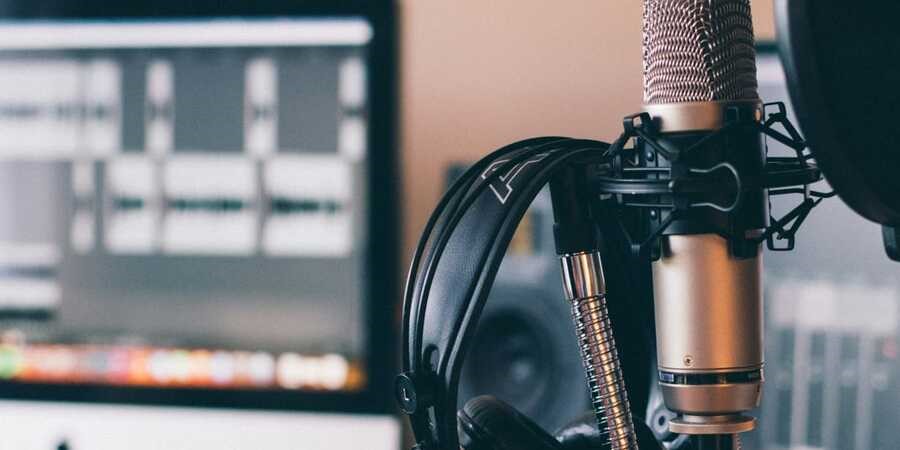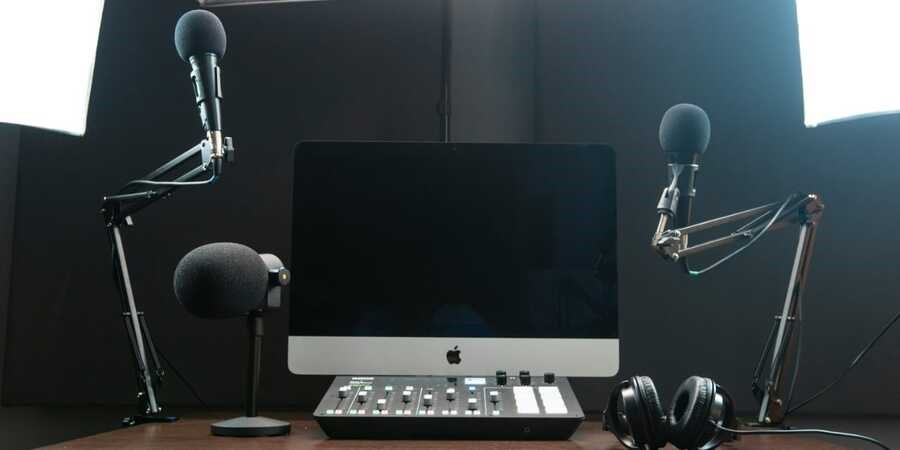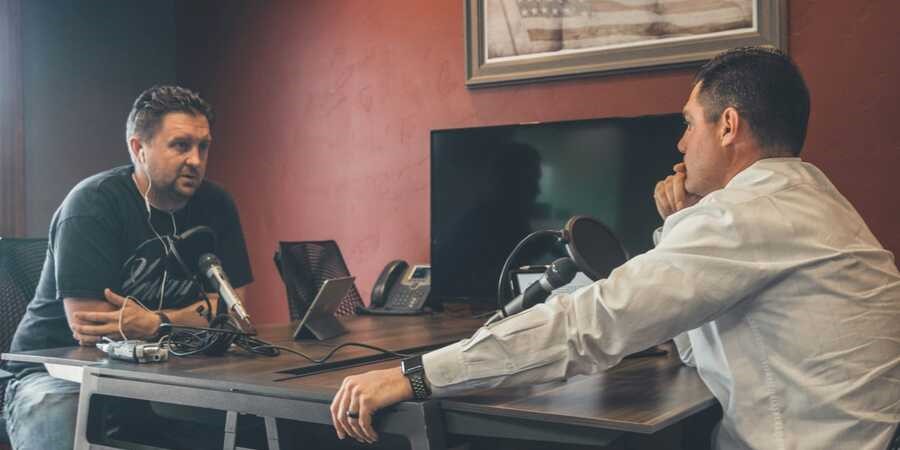Podcasting has emerged as one of the most effective channels for storytelling, education, and brand growth. The growing number of active podcasts demonstrates their enduring popularity, but merely clicking the record button does not guarantee success. An amazing podcast is distinguished by a strong plan, consistent execution, and a thorough understanding of the listener
Whether you’re a beginner just getting started or an experienced podcaster looking to improve your approach, following the appropriate guide is vital. The appropriate methods result in a healthy show that not only keeps listeners but also grows over time. Every facet of your podcast, from identifying your niche to captivating storytelling and audience engagement, contributes to its uniqueness
Start with a Unique and Engaging Concept
A successful podcast starts with an original and compelling concept that sticks out. The easiest approach to accomplish this is to create a powerful idea that not only captures your enthusiasm but also matches your talents and experiences. A great podcast should seem natural and exciting for the host, because the best podcasts are born from genuine excitement. Choosing the correct niche is critical. It allows you to identify your target audience and guarantees that your content addresses their demands To improve your idea, begin by investigating your competitors. Analyze existing podcasts in your sector to identify gaps and carve up your own market niche.
Your podcast should offer something unique, such as a new perspective, deeper ideas, or a novel format. Before making a long-term commitment, you should test your idea by recording a pilot episode. This allows you to collect comments, adapt based on listener input, and enhance before launching formally. Podcasting success requires more than just recording; it also requires understanding your audience, solving their problems, and always refining your approach. Every great podcast begins with a clear goal, a strategic strategy, and a willingness to improve.

Invest in High-Quality Audio and Production
Investing in good audio production is critical for producing high-quality podcasts. Poor sound can turn off listeners, whereas crisp, clear audio keeps them engaged. Using professional equipment makes a noticeable difference and helps to distinguish your podcast from the competition. A basic audio setup checklist comprises a high-quality microphone like the ATR2100-USB or Shure SM7B, as well as headphones like the Audio-Technical ATH-M30x for precise monitoring.
Beyond recording, outstanding podcasts require excellent post-production editing. Using tools such as Riverside.fm or Audacity results in a clean end product. Editing is essential for increasing quality deleting background noise, removing extraneous content, and providing a professional finish to your episodes improves the listening experience

Create Compelling and Valuable Content
A podcast lives on intriguing and useful information that actually engages its listeners. Storytelling is important because people connect with stories more than with facts. Rather of simply giving facts, a well-structured presentation engages listeners. Sharing personal experiences, employing case studies, and including real-world examples helps to make your material more approachable and memorable
It’s also critical to keep your episodes short and engaging. The average listener’s attention span is limited, so while long-form debates have their place, shorter, high-value episodes of 20-30 minutes frequently outperform. Trimming unneeded elements helps keep listeners interested. To maximize impact, cut out the extraneous fluff and concentrate on providing material that brings actual value. When a podcast is well-structured and tells fascinating stories, listeners return for more.

Be Consistent with Your Publishing Schedule
Consistency is the foundation of any successful podcast. Your listeners develop habits based on your publishing schedule, therefore it’s critical to release episodes on a regular basis. Whether you set a weekly, biweekly, or monthly timetable, sticking to it keeps your audience interested and returning for more.
A great pro advice for those starting out is to record episodes ahead of time. This eliminates last-minute stress and guarantees that you are not rushing to meet deadlines. Planning ahead of time allows you to keep a consistent flow of information while avoiding unexpected gaps in your schedule. The key to long-term success is consistency. A consistent schedule builds credibility and makes your podcast a dependable part of your audience’s routine

Engage with Your Audience
Building a dedicated audience for your podcast is just as crucial as providing content. To achieve this, actively encourage listener interaction. Request feedback, hold Q&A sessions, and even build social media polls to keep the conversation going. These efforts help you better understand your audience and allow them to participate in the experience.
It’s also important to provide personal tales and discuss current trends. This makes your material more relatable, new, and timely. Engaging in these ways gives listeners the impression that they are part of a dynamic and evolving show. Don’t forget to actively engage with your followers on social media, emails, and podcast platforms. When you communicate with them and make them feel heard and respected, you build a stronger bond that can convert casual listeners into loyal fans

Leverage the Power of Guest Appearances
Featuring guests with existing followings is one of the fastest methods to build your audience. You can use the Other People’s Audience (OPA) technique by inviting well-known figures in your niche. These guests can help promote your episode to their own audience, bringing in new listeners who would not have discovered your podcast otherwise.
To get the most out of these guest appearances, prepare by presenting key discussion points ahead of time. This ensures that your talks are of high quality and valuable, while also keeping the content focused and entertaining for your audience. I’ve discovered that these deliberate preparations result in more valuable talks that actually connect with listeners

Master Podcast Marketing and Promotion
When it comes to distinguishing your best podcast, marketing is vital. Without it, no one will be aware of your podcast’s existence. The objective is to get listeners interested and passionate about your topic. A strong way to accomplish this is through social media promotion. Instagram, Twitter, LinkedIn, and TikTok are ideal platforms for sharing eye-catching episode clips, teasers, and quips.
SEO optimization is critical for improving visibility. Including relevant keywords in episode titles, descriptions, and show notes boosts your podcast’s discoverability. You can also participate in cross-promotion by collaborating with other podcasters on guest exchanges or shoutouts. This exposes your podcast to new listeners and contributes to the growth of a devoted following. Another efficient strategy is email marketing. Building a newsletter allows you to share episode updates, special content, and behind-the-scenes stories with your listeners, keeping them interested and returning for more.

Monetization: Turning Your Podcast into an Income Stream
A successful podcast is more than simply amazing material; it can also be a profitable endeavor. To monetize your podcast, you need investigate several revenue streams. Sponsorships and commercials are popular options, with corporations paying to have their adverts featured if you have a large listener base. Another alternative is affiliate marketing, which allows you to promote items or services you believe in while earning commissions.
You can also provide exclusive content to your listeners, such as VIP episodes, additional content, or ad-free listening, particularly on services like Patreon. Additionally, making and selling stuff, digital products, and even online courses or e-books that are relevant to your industry is a wonderful way to earn extra money. The idea is to figure out what works best for your podcast and audience, and then use those tactics to start making money from your efforts.

Keep Improving and Adapting
To ensure the long-term success of a podcast, you must consistently track its performance. You can use analytics and tools to track key data such as listener interaction, episode downloads, and audience demographics. These data points provide insight into how your content performs and what your audience prefers. Once you’ve gathered the information, it’s time to experiment and adjust. Be adaptable with your material. For example, if a specific episode style or topic gains popularity, don’t be afraid to expand on it and continue developing comparable material that resonates with your audience.
The idea is to remain dynamic and adapt as the audience grows. As the podcasting world evolves, it’s critical to stay current on growing trends, new formats, and altering marketing methods. This allows you to remain ahead of the curve and keep your podcast new and engaging while catering to the ever-changing preferences of your listeners.
